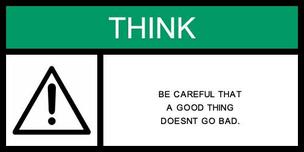
However, promoting personal Bible reading (without training) and the independent discovery of God’s truth (outside of community and well-trained teachers) has contributed to the creation of 34,000 denominations in the last 500 years. With a Bible in hand, Christians can justify reasons for dividing as "biblical." Opinions, causes, or revolts can slap a verse in their language on their hobby horse and ride it down whatever road they want. Individuals and groups, even with the best of intentions, create new “biblical” truth by mixing their culture, experience, hermeneutical incompetency, prior indoctrination, politics, personal preferences, etc. And who can blame them for standing up for what they believe? If you think you’ve figured out “what the Bible really says” about God, shouldn’t you follow your conscience like Luther and form a more “biblical” church?






 RSS Feed
RSS Feed
